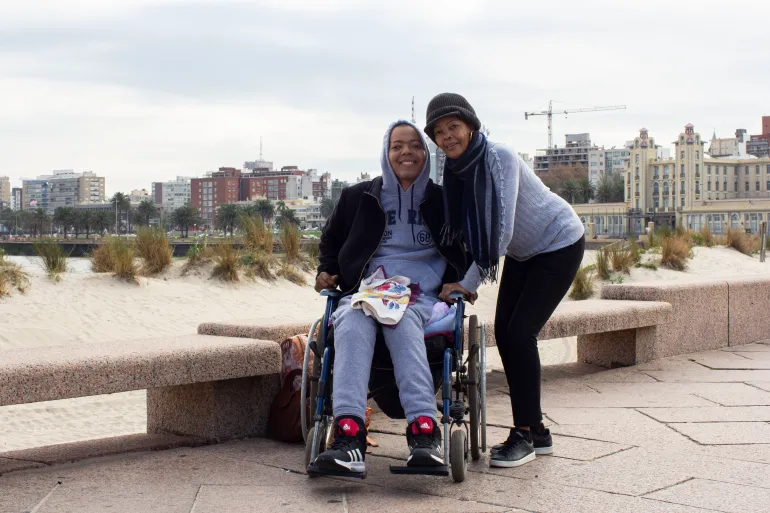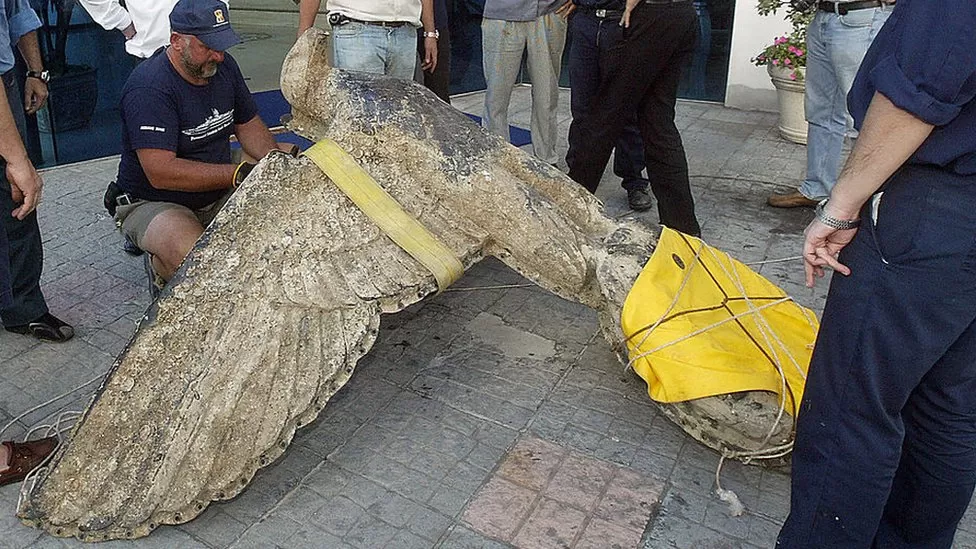Families waiting to apply for permanent residency say Uruguay’s new visa requirements are jeopardising their future.

Montevideo, Uruguay – Balbina Ponce Matias and her 33-year-old paraplegic son, for whom she is the sole caregiver, have lived their whole lives in Havana. But last November, they decided to leave the Cuban capital behind.
“I had no way to feed my son,” Ponce Matias told Al Jazeera.
“There is no medication, no diapers for disabled people; clothing and shoes are difficult to obtain. We would experience up to five hours of electricity cuts per day. You can’t find wheelchairs, you can’t find anything. So we said to ourselves, let’s seek a second chance at living.”
They are not alone. Amid Cuba’s largest exodus in decades, thousands of people driven out by the country’s severe economic crisis are seeking to start new lives abroad.
While many have headed north to the United States, a less conventional route has attracted some southwards towards Uruguay; Ponce Matias saw this as a safer path than attempting to enter the US via Mexico. But new visa requirements in the South American country are leaving thousands in migratory limbo, advocates say.
Applicants for asylum in Uruguay are provided with temporary identity cards that grant them access to the workforce and public services, such as education and healthcare, as they await a final decision on their status. Valid for two years, the cards can be renewed for an additional year up to two times.
Under Uruguayan law, at any time, asylum applicants can shift from seeking refugee status to pursuing a permanent residency visa, provided they have all the required documentation. But this past January, migrants and rights groups say, the Uruguayan government began implementing new regulations for permanent residency, requiring applicants to show passport entry and exit stamps from Brazil.
This is impossible for many migrants who entered the country through irregular routes.
Cuba economy: Government seeks to revive food production
According to Alberto Gianotti, founder of the Uruguayan non-profit Migrant Support Network, this new requirement has left about 10,000 Cubans in migratory limbo in the country.
“They entered and exited Brazil irregularly, entered Uruguay, possess documents due to their refugee application, and when they want to change their migratory status by renouncing refugee status, they are asked to fulfil a requirement they cannot meet,” Gianotti told Al Jazeera, noting that the requirement for passport stamps should be dropped.
“If these people cannot request permanent residency due to not having entry and exit stamps from Brazil, who are we going to expel?” he said. “Ten thousand to 12,000 migrants, vulnerable people? That would be detrimental to the country.”
NewLatter Application For Free





